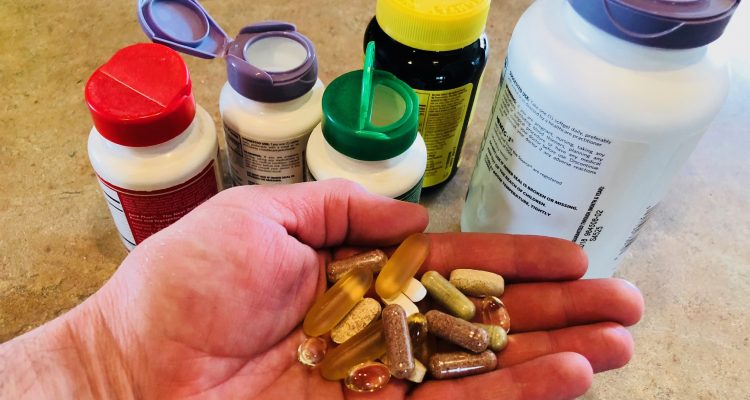To Supplement or Not To Supplement?
The great supplement debate and why we are so opposed to taking them
The nutritional supplement group is one of fastest growing industries in the world. Roughly $32 billion in revenue was generated in 2012 by nutritional supplements, and the industry is estimated to nearly double that by 2020 at a projected $60 billion in revenues[1]. If the supplement industry is so popular, why then have we become so averse to taking them?
Perhaps that is just the reason: we are constantly bombarded by sales pitches and health propaganda that it is almost nauseating when supplements are recommended. Nearly everyone has a story of visiting a health practitioner and leaving with a laundry list of suggested vitamins. Or, maybe you invested hundreds of dollars in a myriad of pills advertised to be the “magic pill,” that would change your life. Supplements have been so overly sold and excessively enforced that even the word “supplement” has lost its true value and efficacy.
Possibly the negative connotation comes from the fact that many medications are offered as a Band-Aid to our current health status. Standard medicine often fails to look at the body in its entirety, only treating the symptoms and not the root cause.
Either way, despite the aggressive growth in the supplement industry, we have somehow developed a negative connotation associated with the word. This is concerning as it may inhibit the ability to achieve optimal gut health.
To rekindle our relationship and acceptance of supplements, let’s first start by defining the word. Google’s definition of the word supplement is, “Something that completes or enhances something else when added to it.” I joke with my clients that they are not called permanents for a reason; rather, supplements are temporary additions to your daily routine – or supplemental if you will. They help restore any nutritional deficiencies that may be impacting your health, and then you can slowly work to decrease the supplements over time.
Supplements are important for several reasons.
One, most of us are not consuming nearly enough nutrients from our food as our body needs. While the Standard American Diet, which is typically high in processed foods, can be partially to blame, it can also be attributed to our soil. Unfortunately, modern agricultural methods have depleted fresh fruits and vegetables of the vitamins and minerals our body needs, leaving our produce empty of vital nutrients[2]. This is also why it is important to purchase local, organic produce whenever possible (like from Grower’s Organic GOBOXES) as it will be more nutrient dense. In the meantime, it is often necessary to supplement with vitamins and minerals in order to restore those levels in the body.
Furthermore, if you have a compromised gut, you are likely not properly digesting foods. The body absorbs most of its nutrients in the small intestine. If there is any damage to the gut lining (also referred to as “leaky gut”), then the body has an impaired ability to absorb and assimilate nutrients into the body. That will leave you nutrient deficient and lacking in a number of important vitamins and minerals essential for optimal health.
In addition, our everyday diet and lifestyle naturally depletes our body of nutrients and digestive enzymes. Raise your hand if you’ve ever taken medications or antibiotics, eaten processed foods, or endured periods of chronic stress? Likely you have nodded in agreement with at least one, if not all, of the three options! If so, your body may be lacking in certain nutrients.
For instance, most of us have too little stomach acid, as stress, diet, and medications all negatively impact digestive enzymes. Plus, digestive enzymes decrease with age, and if we are not properly digesting our foods, our gut health can become compromised. That is why it can often times be necessary to temporarily supplement with a digestive enzyme to boost enzyme levels, then work towards decreasing over time.
In addition to supplements, there are many “food as medicine” approaches that can help boost digestive enzymes. Pineapple, honey, and bone broth are a few foods that can help boost digestive enzymes. Even taking a swig of sauerkraut juice before your meals can aid in digestion.
One final note: it is important to be cognizant of your thoughts and feelings associated with supplements, especially as you down your next handful of vitamins. It is true, our thoughts and feelings associated with what we consume directly affect our health[3]. If we enforce negative thoughts, our bodies will respond negatively. The reverse is also true: if we enforce positive thoughts, our bodies will respond accordingly. So, begin enforcing positive thought patterns surrounding the foods you eat. For example, rather than worry about the supplements, try imagining it nourishing your body. Perhaps even repeat a mantra like: “This is going to heal me,” or, “This supplement is restoring my health.” Over time, you may notice a shift in perspective on supplements and hopefully an improved overall sense of wellbeing.
It is important to understand the benefits of supplements. They can offer much-needed assistance in achieving optimal gut health. Next time you prepare yourself to wash down a few vitamins, remember, it likely is only temporary and much-needed to restore what has been depleted. Over time, you are on your way to achieving optimal gut health!
[1] https://www.forbes.com/sites/davidlariviere/2013/04/18/nutritional-supplements-flexing-their-muscles-as-growth-industry/#500c3af08845
[2] https://www.scientificamerican.com/article/soil-depletion-and-nutrition-loss/
[3] https://www.npr.org/templates/transcript/transcript.php?storyId=299179468




Leave a Reply